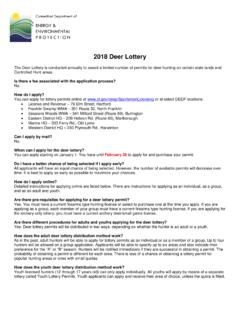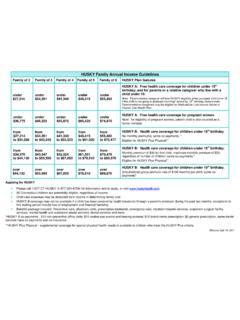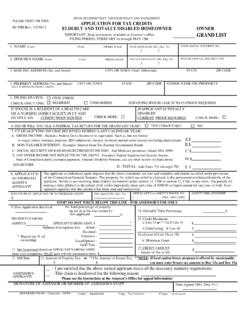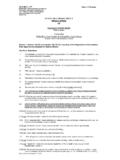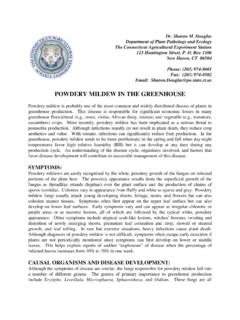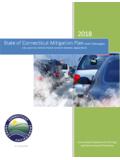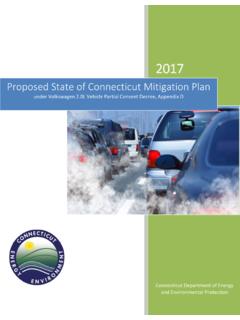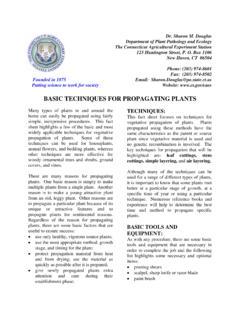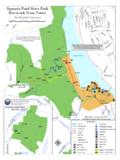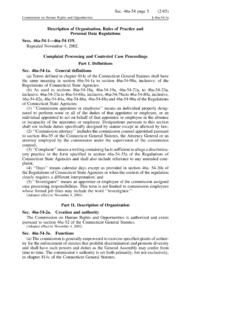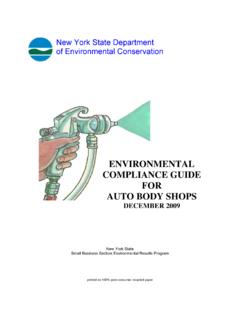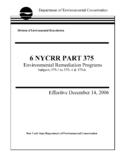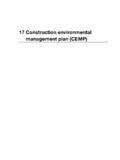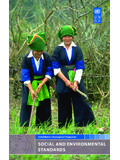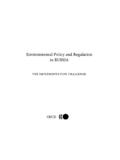Transcription of Environmental Best Management Practices Guide for Small ...
1 connecticut Department of Environmental Protection 79 Elm Street Hartford, CT 06106 Management PracticesGuide for Small BusinessesEnvironmentalBest Management PracticesGuide for Small BusinessesConnecticut Departmentof Environmental Protection best ManagementPractices forStormwater,Pesticides & WasteFor more information or assistance , please contact thefollowing DEP programs: connecticut Department of Environmental Protection79 Elm Street, Hartford, CT 06106 Pesticide Management Program (860) 424-3369 Stormwater Management Program (860) 424-3003 Waste Management Program (860) 424-3023 The objective in stormwater pro-tection is to prevent pollutionfrom entering our groundwaterand surface Management Practices (BMPs)
2 Are specificpractices that are capable of preventing andminimizing ground-water and surface waterpollution as a result of day-to-day activities insmall businesses such as garden centers, retailhome improvement centers, pool supply centersand hardware stores. Store both products and wastes that can pollutestormwater indoors or under shelter. These materialsinclude: pressure-treated lumber, pesticides, fertilizers,oils, fuels, paints, thinners, solvents and poolchemicals. Clean catch basins and other stormwater treatmentdevices on a regular basis. Always keep dumpster lids closed with drain plugsintact.
3 Maintain speedi-dry, absorbent pads and other spillcontrol equipment near catch basins and drains andready for use in case of a spill. Never dump anything down the storm drain. Thisincludes wash water from outdoor product displayareas, garden areas, loading docks, parking lots, indoorfloor areas, and vehicle or equipment maintenanceareas. Store bagged goods and liquid goods as far as possiblefrom floor drains, trenches or stormdrains to minimizerisk of releasing spilled materials. Ripped and/or damaged packages of fertilizers and soilsshould either be covered or repackaged to preventmaterial from entering the environment.
4 (See Pesticide& Fertilizer BMPs for additional details.) Outside areas should be routinely swept, shoveled andcleaned of litter. Do not wash outdoor areas with wateror other solutions. Limit plant watering so excess water does not enter thestorm drain. Group plants with similar water needstogether to improve watering efficiency and avoidexcess BMPsStormwater pollution can lead to numerousenvironmental problems that may affect humanhealth. Stormwater pollution comes in manyvarieties. Incorrect Management Practices canresult in the release of contaminants such as toxicchemicals, sediments, fertilizers and oil andgrease to nearby DEP is an affirmative action/equal opportunityemployer.
5 In conformance with the ADA individuals withdisabilities who need information in an alternativeformat, to allow them to benefit and/or participate in theagency s programs and services, should call (860) 424-3051 or (860) 418-5937 and make their request to theAAO staff person. Requests for accommodations toattend meetings and/or educational programs,sponsored by the DEP, must be made at least twoweeks prior to the program requests may be made directly toMarcia Z. Bonitto, ADA Coordinator, via You is the number one cause of pollutedrunoff water in the streams and rivers?
6 Surface waters are where we play, relax, enjoywildlife, and even get our drinking , the quality of surface water isthreatened by common materials that getcarried to them with every , the health of the region's surfacewater can be improved by working together toreduce the amount of polluted stormwaterreaching our treasured waterways for todayand future generations. Retailers of pesticides must do the following: Inform customers purchasing pesticidesthat signs must be posted to notify thepublic of the pesticide application. Provide posting signs to customerspurchasing outdoor pesticides.
7 Display a sign notifying customers of theposting requirements. The sale of Diazinon (previously one of the mostcommonly used pesticides) for indoor and non-agricultural uses is banned. The sale of Chlorpyrifos products for home, pet,lawn, and garden use is banned. Pesticide containers should be labeled with thefollowing information: Trade name Active and inert ingredients Precautionary statements Directions for use EPA registration number Storage requirements Containers should be stored in a mannerconsistent with requirements printed on thelabel. The sale and distribution for homeowner use ofchromated copper arsenate (CCA), which is usedto protect wood from insect attack and decay, isprohibited.
8 Chemical alternatives to CCA includealkaline copper quaternary (ACQ) and copperboron azole (CBA). If a package containing pesticides and fertilizerscontaining pesticides is damaged to the pointwhere the required information is missing orPesticide & Fertilizer BMPsPesticides (including herbicides andinsecticides) and fertilizers must be properlyapplied, stored, handled and disposed of toprevent contamination of surface water andgroundwater. Misuse of pesticides andfertilizers can result in adverse impacts toaquatic life, even at low Small businesses will qualify as CESQGs.
9 Thefollowing item should be implemented. Perform a hazardous waste determination onall the wastes you generate, and keep recordsfor a minimum of three years. A waste manifest should be filled out whenshipping hazardous waste to a disposalfacility. These manifests should bemaintained on site. If your site contains more than five acres ofimpervious surface, you are required to registerfor a DEP stormwater permit and develop astormwater plan. If your facility has 42,000 gallons ofunderground petroleum storage or 1,320 gallonsof aboveground petroleum storage, you may berequired to develop a spill, prevention, controland countermeasure BMPsWaste BMPsWaste BMPsWaste BMPsWaste BMPsSmall businesses that generate less than 220pounds (about 26 gallons) per month andaccumulate no more than 2,200 pounds ofhazardous waste on-site at any one time andthat generate less than pounds per monthof acutely hazardous waste are consideredConditionally Exempt Small QuantityGenerators ( CESQG ).
10 Illegible, it is misbranded. The package cannotbe relabeled by a retailer/distributor or end a package containing pesticides or fertilizerscontaining pesticides is damaged but therequired information is complete and legible, theretailer/distributor or end user can place thepackage in a clear plastic bag and/or place cleartape on the package to repair the damage. It isacceptable to sell/use the product as long as thelabel is complete, legible and registered. Consider providing for sale and using on-sitealternatives to synthetically derived pesticidesand fertilizers. Organic landscaping uses a wholesystems approach to maintaining groundswithout toxic information about organic products is available from thefollowing sources:Organic Materials Review Institute is a non-profitorganization that determines which input products are allowedfor use in organic production and processing according to is a non-profit organization that has informationabout natural lawn and grounds care, how-to videos, productrecommendations and more.
